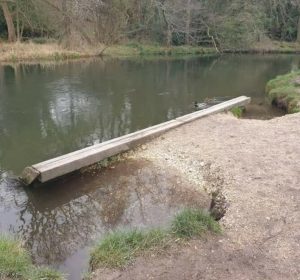Environment Bill clause defeat makes front pages
The Environment Bill currently working its way through parliament generated mainstream news coverage and front-page headlines when 265 Conservative MPs voted against a proposed amendment put forward by the Duke of Wellington on 20 October. The amended aimed to place a duty on water companies and regulatory authorities to take all reasonable steps to ensure untreated sewage is not discharged from storm overflows. The subsequent outcry on social media left MPs struggling to justify their vote.
The BBC reported that Conservative MP Julie Marson says the proposals to end the dumping of raw sewage would cost between £150bn and £650bn and that it would be unfair to expect bill payers to cover this. At the time of writing, we haven’t been able to confirm the accuracy or the timescale of the £150bn to £650bn estimate. Meanwhile, other MPs argued that the existing provisions in the Environment Bill were sufficient and the amendment wasn’t needed. The Guardian reported that many Conservative MPs “posted almost identical” statements supporting their voting decision.
Hugh Tagholm, CEO of Surfers Against Sewage, responded by saying: “In this most important of environmental decades, it’s shocking that the government recommended that MPs reject progressive and ambitious amendments that would protect water, air and nature.
“Why wouldn’t they want water companies to have a legal obligation not to pollute our rivers and ocean with sewage, for example? It beggars belief and hardly shows a commitment to be the greenest government ever.”
On Twitter, both #TorySewageParty and #Sewage hit the 10 ten tweeted hashtags in the UK, gathering in excess of 80,000 tweets between them in 24 hours.
MPs were expected to have another chance to vote on the amendment on 27 October as the Duke of Wellington re-tabled it in the House of Lords on 26 October. However, the government instead announced that it will produce its own amendment that will place a new duty on water companies to reduce the amount of raw sewage discharged into the environment. At this stage, we do not know the wording of this amendment.
Theo Thomas, who runs London Waterkeeper, a charity dedicated to defending rivers and challenging polluters, says there is still a lot in play and much will depend on the amendment’s final wording. He also noted that the final effectiveness of the Environment Bill will depend on the powers given to the Office of Environmental Protection, which has been set up to hold government and public authorities to account against their commitments and environmental law.
“We need to keep watching this and keep up the pressure on MPs and government,” he said. “Change won’t happen unless we do this.”
This story was amended on 27 Oct 21 to reflect new developments on 26 Oct.
Image: Swimmers enjoying the Thames – but potentially swimming in polluted water








